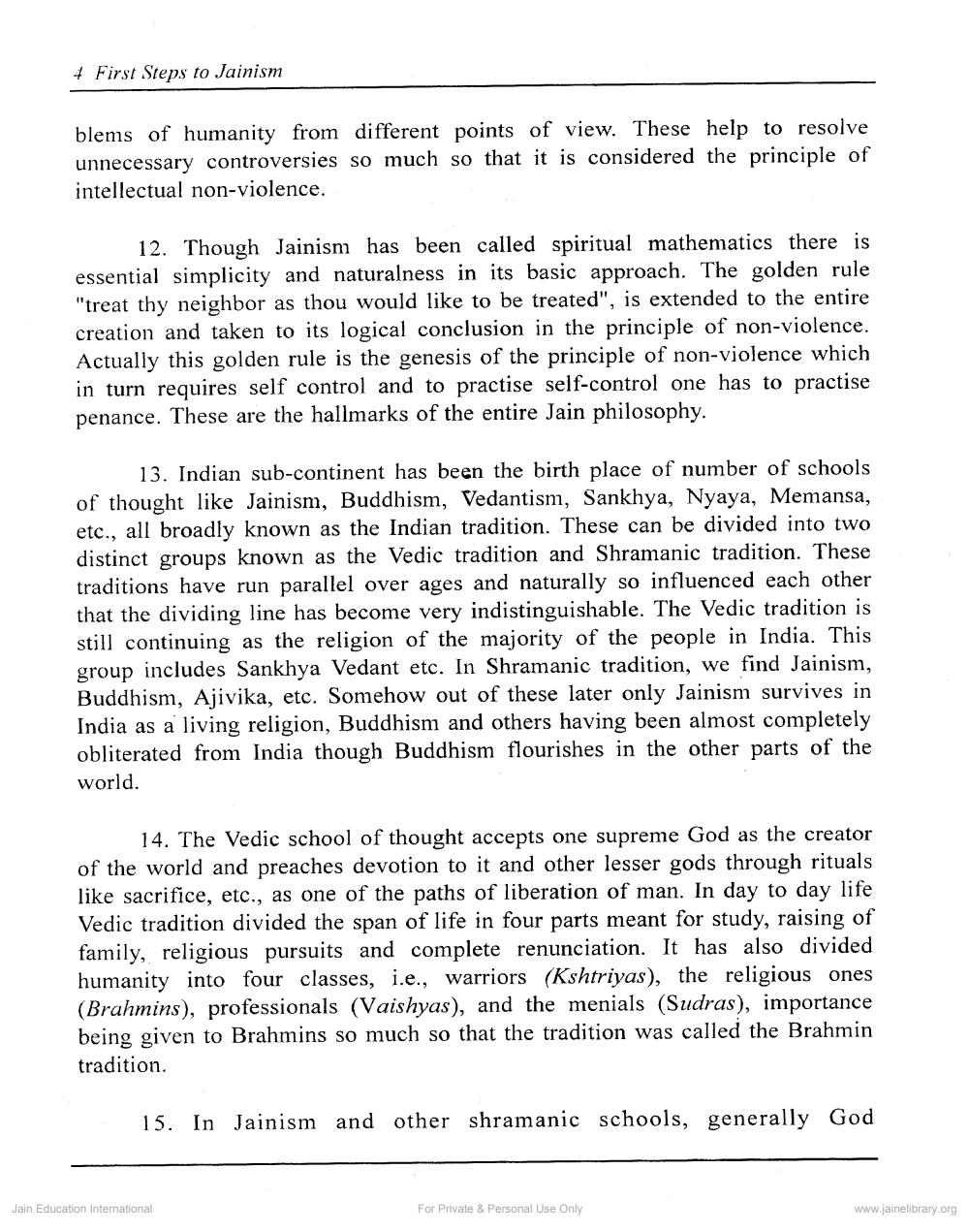________________
+ First Steps to Jainism
blems of humanity from different points of view. These help to resolve unnecessary controversies so much so that it is considered the principle of intellectual non-violence.
12. Though Jainism has been called spiritual mathematics there is essential simplicity and naturalness in its basic approach. The golden rule "treat thy neighbor as thou would like to be treated", is extended to the entire creation and taken to its logical conclusion in the principle of non-violence. Actually this golden rule is the genesis of the principle of non-violence which in turn requires self control and to practise self-control one has to practise penance. These are the hallmarks of the entire Jain philosophy.
13. Indian sub-continent has been the birth place of number of schools of thought like Jainism, Buddhism, Vedantism, Sankhya, Nyaya, Memansa, etc., all broadly known as the Indian tradition. These can be divided into two distinct groups known as the Vedic tradition and Shramanic tradition. These traditions have run parallel over ages and naturally so influenced each other that the dividing line has become very indistinguishable. The Vedic tradition is still continuing as the religion of the majority of the people in India. This group includes Sankhya Vedant etc. In Shramanic tradition, we find Jainism, Buddhism, Ajivika, etc. Somehow out of these later only Jainism survives in India as a living religion, Buddhism and others having been almost completely obliterated from India though Buddhism flourishes in the other parts of the world.
14. The Vedic school of thought accepts one supreme God as the creator of the world and preaches devotion to it and other lesser gods through rituals like sacrifice, etc., as one of the paths of liberation of man. In day to day life Vedic tradition divided the span of life in four parts meant for study, raising of family, religious pursuits and complete renunciation. It has also divided humanity into four classes, i.e., warriors (Kshtriyas), the religious ones (Brahmins), professionals (Vaishyas), and the menials (Sudras), importance being given to Brahmins so much so that the tradition was called the Brahmin tradition.
15. In Jainism
and other shramanic schools, generally God
Jain Education International
For Private & Personal Use Only
www.jainelibrary.org




